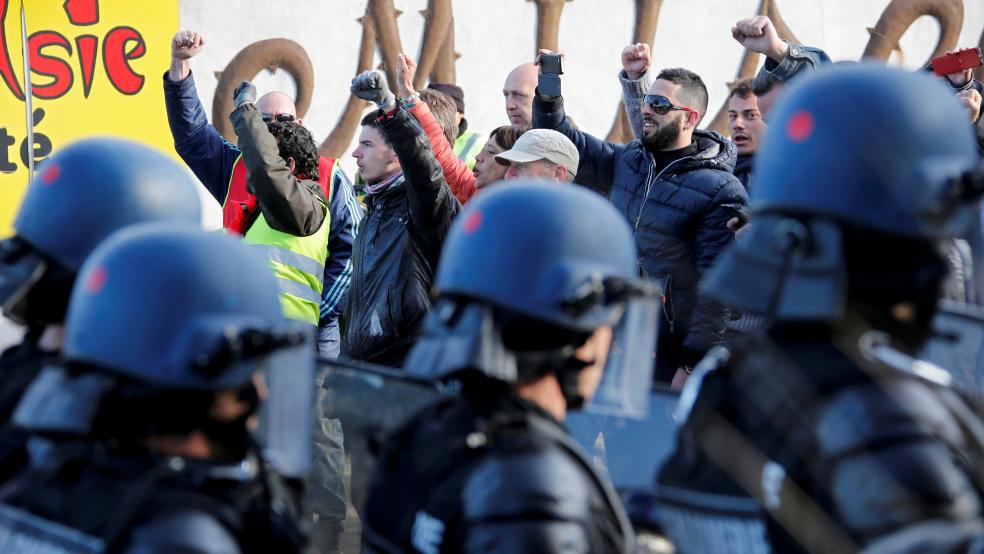PARIS (Reuters) - France's economy is not recovering quickly enough to cut unemployment and debt significantly, and will not do so without further reforms, the International Monetary Fund said on Tuesday despite slightly raising its growth estimates.
Yet deeper reforms won't be easy. The IMF's warning came as President Francois Hollande's government squared off with unions carrying out refinery, port and rail strikes over plans to ease protective labor regulations and make hiring and firing easier.The French economy is set to grow close to 1.5 percent this year and 1.75 percent on average in the coming five years, the IMF said in the preliminary findings of an annual review of France. Previously, the institution had forecast 1.1 percent growth this year and 1.3 percent next year.The more optimistic outlook lends some credence to the government's own forecasts for growth of 1.5 percent this year and next, which many economists say is the bare minimum necessary to get unemployment falling."The bottom line is that the pace of growth that we project for the medium term ... will not lead to a very fast reduction in unemployment or debt," IMF France mission chief Christian Mumssen told reporters.Less than a year away from a presidential election in which Hollande has yet to say whether he will run, the Socialist government is banking on business-friendly reforms to the labor market to stimulate job growth and bring down unemployment, currently stuck at about 10 percent.Those reforms, which the government forced through the lower house of parliament without a vote to dodge a rebellion, have infuriated trade unions and driven a wedge through the ruling Socialist Party. On Tuesday, riot police fired tear gas and water canon to break through a picket line outside an Exxon Mobil CorpStrikes, protests notwithstanding, IMF prods France to reform

JEAN-PAUL PELISSIER



